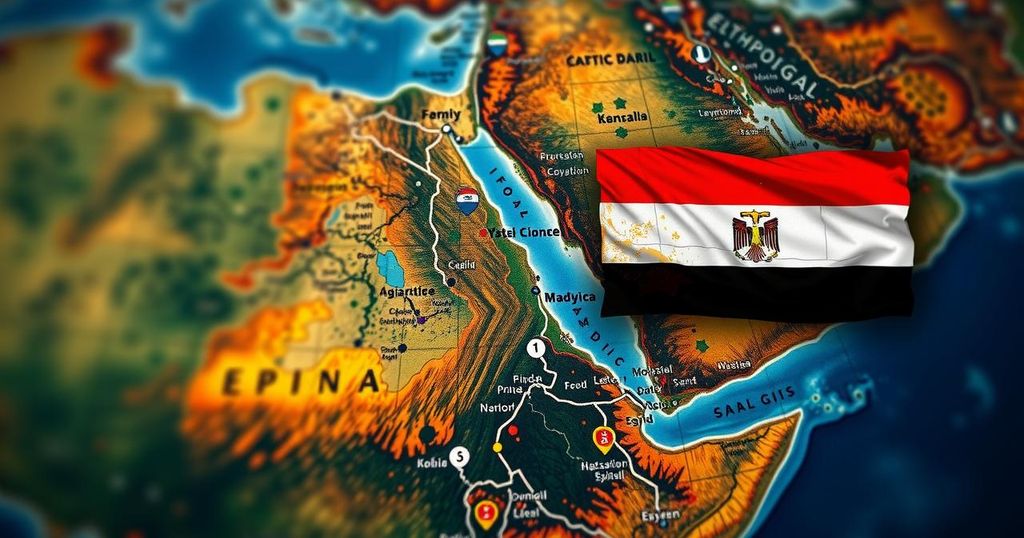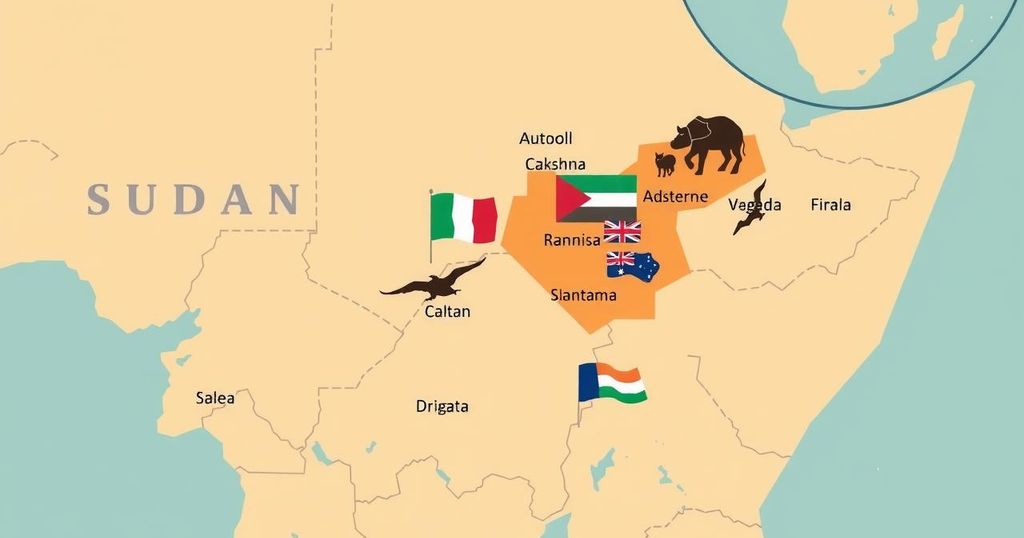Global news
ADDIS ABABA, AFRICA, AFRICAN PROGRAM, AFRICAN UNION, AL - AHRAM, AL - AHRAM CENTRE FOR POLITICAL AND STRATEGIC STUDIES, AMA, CAIRO UNIVERSITY, DIPLOMACY, EL - TAWIL, ERITREA, ETHIOPIA, FORCES, IM, IMAN ABDEL AZIM, INTERNATIONAL CONFERENCE, MUHOOZI KAINERUGABA, NILE, REGIONAL COOPERATION, REGIONAL SECURITY, REGIONAL STABILITY
Marcus Li
0 Comments
Egypt Forms Anti-Ethiopia Alliance in the Horn of Africa
In October, Egypt, Eritrea, and Somalia’s leaders convened in Asmara, pledging military support for Somalia’s counterterrorism initiatives as part of a strategic response to Ethiopia’s growing regional influence. This summit fits into Egypt’s broader efforts to reclaim its ties with African nations amid tensions surrounding the Grand Ethiopian Renaissance Dam and the recently enacted Entebbe Agreement. Experts highlight that Egypt’s military alliances may serve as leverage against Ethiopia, responding to potential regional conflicts.
In early October, the leaders of Egypt, Eritrea, and Somalia convened in Asmara for a trilateral regional cooperation summit that culminated in a commitment to bolster Somalia’s counterterrorism tactics through military support, with an intention to deploy forces under the African Union’s mission. This meeting has been interpreted by analysts as Egypt’s strategic maneuver to counter Ethiopia’s expanding influence in the region, especially following Ethiopia’s agreement with Somaliland earlier in the year to lease coastal territory for a military base in exchange for the region’s diplomatic recognition. The longstanding diplomatic tensions between Egypt and Ethiopia, primarily centered on the Grand Ethiopian Renaissance Dam (GERD), have significant implications for Egypt’s national security. The recent enactment of the Entebbe Agreement, which governs the management of Nile waters, further exacerbates concerns for both Egypt and Sudan regarding their water security. According to Iman Abdel Azim, a political science professor at Cairo University, Egypt has been actively working to reinforce its alliances within Africa since 2019, adopting diplomatic and military cooperative efforts with neighboring nations. As evidence, Egypt and Somalia formalized a military defense agreement in August 2023, shortly followed by military supplies to Somalia. A mutual defense pact with Eritrea was also signed, and discussions with Uganda underscored a mutual commitment to military collaboration. Amani El-Tawil, Director of the African Program at the Al-Ahram Centre for Political and Strategic Studies, highlighted that Egypt’s military and security engagements indicate a deliberate shift from traditional partnerships to a more pronounced military-oriented approach, aimed at countering Ethiopia’s ambitions in the Horn of Africa. Ethiopia’s unilateral establishment of the GERD, which the Cairo authorities perceive as a severe risk to their water supply, underscores this conflict. As noted by Abbas Sharaky, a water resources professor, GERD’s filling has critically diminished Egypt’s water supply, compelling reliance on reserves from the Aswan High Dam. Faced with this impending water crisis, Egypt has engaged in expansive modifications, such as wastewater projects and agricultural shifts, though these efforts entail substantial national expenditure. The historical context reveals that Egypt’s influence in Africa has waned since the days of President Gamal Abdel Nasser, who actively engaged in supporting independence movements and wielded considerable soft power across the continent. The subsequent leadership eras exhibited a shift in focus from African matters, which has contributed to Ethiopia’s ascendancy in regional affairs, culminating in the ratification of the Entebbe Agreement by several Nile Basin countries, further isolating Egypt. Contemporary events indicate that Egypt’s strategy seeks not only to reclaim its influence but to assemble a coalition against Ethiopia’s unilateral maneuvers, as indicated by Abdel Azim, who emphasized the importance of drawing nations aligned with Ethiopia back into Egypt’s sphere of influence. Lastly, the shifting alliances between Ethiopia and Eritrea, particularly following the latter’s concerns regarding the Tigray People’s Liberation Front, further complicate the landscape, revealing a potential alignment where Egypt may leverage its growing influence to counteract Ethiopia’s interests.
The geopolitical dynamics of the Horn of Africa are complex, heavily influenced by historical relationships and recent developments surrounding water security, particularly concerning the Nile River. The Grand Ethiopian Renaissance Dam (GERD) stands central to these tensions, as it has led to ongoing disputes between upstream Ethiopia and downstream Egypt and Sudan. The Entebbe Agreement, which facilitates cooperation over Nile resources, poses a challenge to Egypt’s water management and security, prompting it to pursue alliances with nations in the region to offset Ethiopia’s strategic gains. The summit in Asmara represents a critical juncture in Egypt’s diplomatic efforts to reclaim its influence within Africa and forge a military coalition in response to Ethiopia’s growing assertiveness in the Horn of Africa.
In conclusion, Egypt’s recent diplomatic and military initiatives signify a resolute effort to counter Ethiopia’s regional influence, particularly related to the management of Nile waters and the strategic implications of the GERD. Through high-level partnerships with Eritrea and Somalia, alongside a fortified military presence in neighboring countries, Egypt aims to bolster its security framework while simultaneously attempting to realign its position within the African political arena. However, ongoing challenges stemming from Ethiopia’s assertive policies and regional dynamics continue to shape a precarious balance of power in the Horn of Africa.
Original Source: www.newarab.com




Post Comment